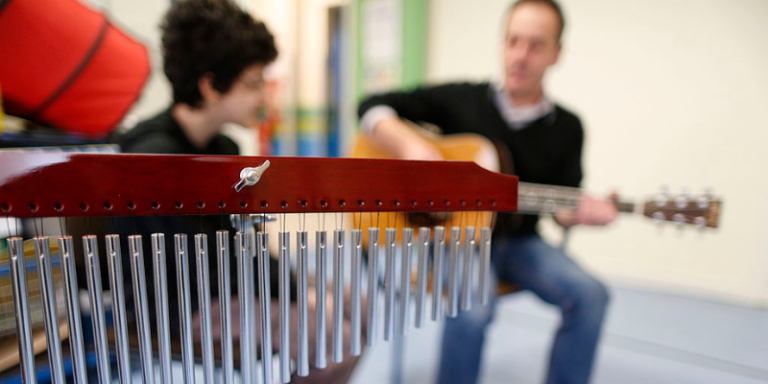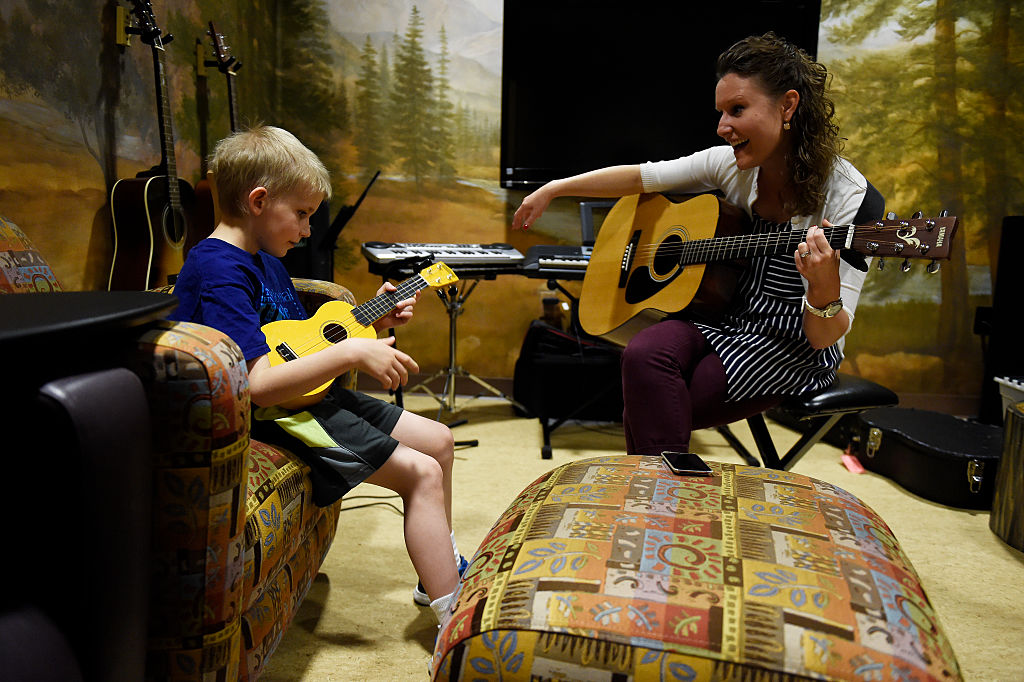Teen Scientist’s Invention Mixes Music with Mental Health
Music can cause changes in the body and the mind - but how can we measure that?
By: Sarah Cowgill | November 28, 2021 | 626 Words

(Photo by: BSIP/Universal Images Group via Getty Images)
Does playing your favorite music affect your mood? The benefits of music on the mind have been researched for a long time, and one teen scientist has won an award for an invention that combines music and mental health.
Sarah Park, a 14-year-old ninth-grader from Jacksonville, Florida, has a long list of accomplishments. She is a math champion, plays piano and violin, and is interested in books and robotics. She was ten years old for her first violin performance at Carnegie Hall. Now Miss Park can add the title of America’s Top Young Scientist to the list. She won a contest sponsored by 3M Company, a business that works in health care and other areas. The contest is the nation’s top science competition for middle school students.
Dr. Denise Rutherford, an executive at 3M, describes the annual challenge: “The 3M Young Scientist Challenge [hopes to encourage] the next generation of science leaders, and exemplifies how a quality STEM [Science, Technology, Engineering, and Mathematics] education can get young people interested and excited about science as a way to improve lives all around the world.”

(Photo by Seth McConnell/The Denver Post via Getty Images)
Music and Mental Health
Music therapy is a treatment where music is used to help people create positive feelings. The therapy can involve making music, writing music, singing, dancing, or just listening to the right types of music. It is usually used with other therapy methods.
It is used to help with lots of issues, such as Autism, anxiety, depression, low self-esteem, stress, disabilities, and physical injuries or health problems. According to the American Music Therapy Association, it can help to:
- Promote Wellness
- Manage Stress
- Alleviate Pain
- Express Feelings
- Enhance Memory
- Improve Communication
- Promote Physical Healing
The Device

(Photo by Jose Perez/Bauer-Griffin/GC Images)
The award-winning entry was a device called Spark Care+, which measures the body’s response to music. Park hopes this will become an important part of music therapy. The device uses artificial intelligence as a testing tool. Shortly after Park became a finalist, she explained her breakthrough device to a local newspaper near her school:
“It’s basically a personalized music therapist that uses artificial intelligence to diagnose and provide a therapeutic treatment for mental health disorders. It uses the two main sensors, galvanic skin response [changes in sweat on the skin], and photoplethysmography [a way of measuring blood circulation] to see the changes that happen when music is occurring through detecting the eccrine gland, which is a sweat gland right under the skin.”
In short, Spark Care+ measures how the body changes when a person is listening to music, looking at sweat and blood activity around the skin. It also uses computer algorithms to process the information and help when choosing the best music for the patient.
Questions are posed to participants, and responses are measured on a tool called the Hamilton Anxiety and Depression scale. The next step allows the sensors to detect the person’s mental state, including heart rate and blood pressure. Park is now planning to create a wrist ban monitor, much like a fitness watch, which will include a heart-rate monitor and a Bluetooth connection.
Congratulations and titles aren’t the only prize given to young Park: The contest paid $25,000 for first place. And Sarah has plans for that cash: “I hope to use it to further develop Spark Care+. I hope to create an app to make it even more accessible. I really hope Spark Care+ will help a lot of people around the world with their mental health and emotional well-being.”
















